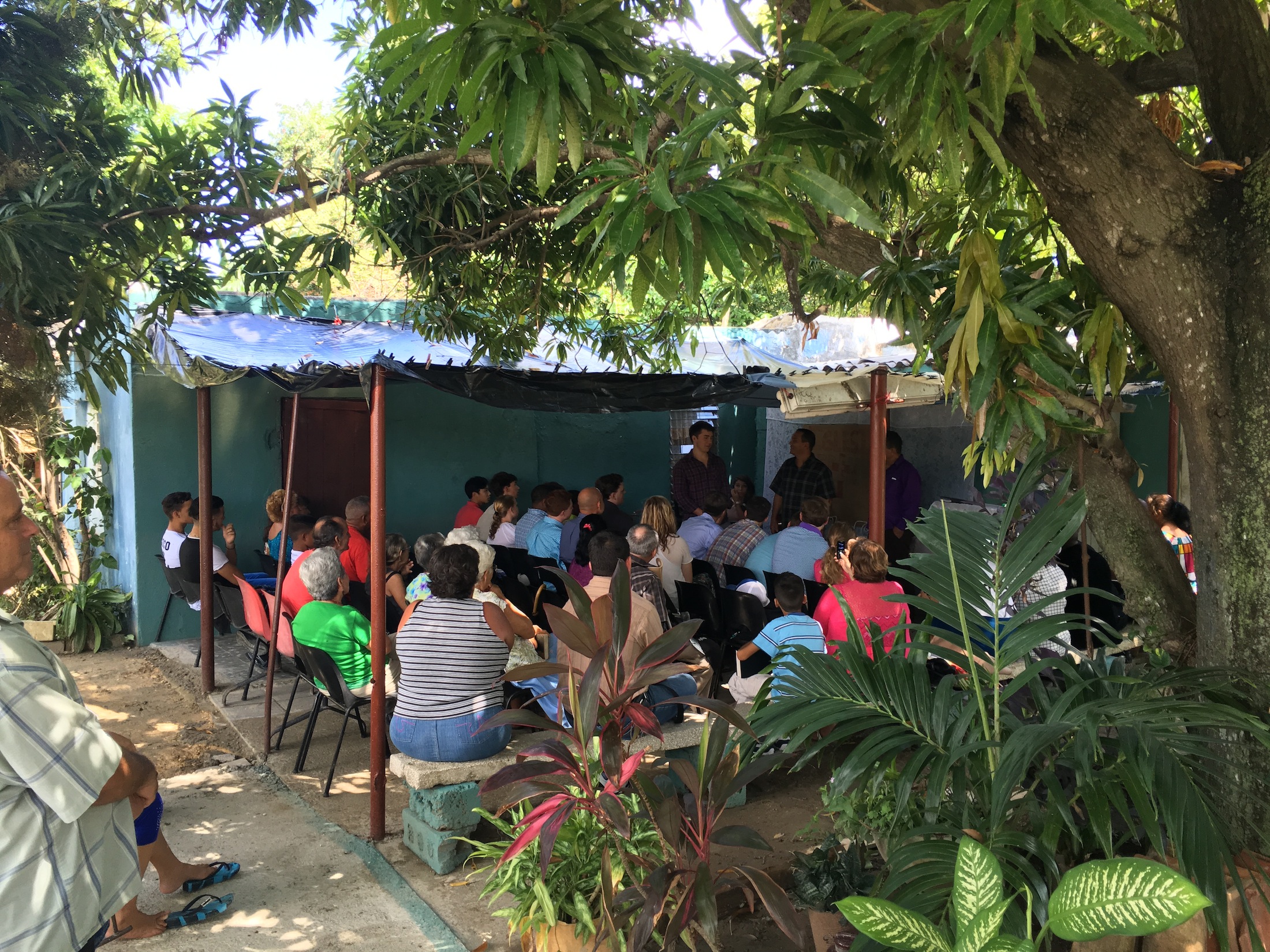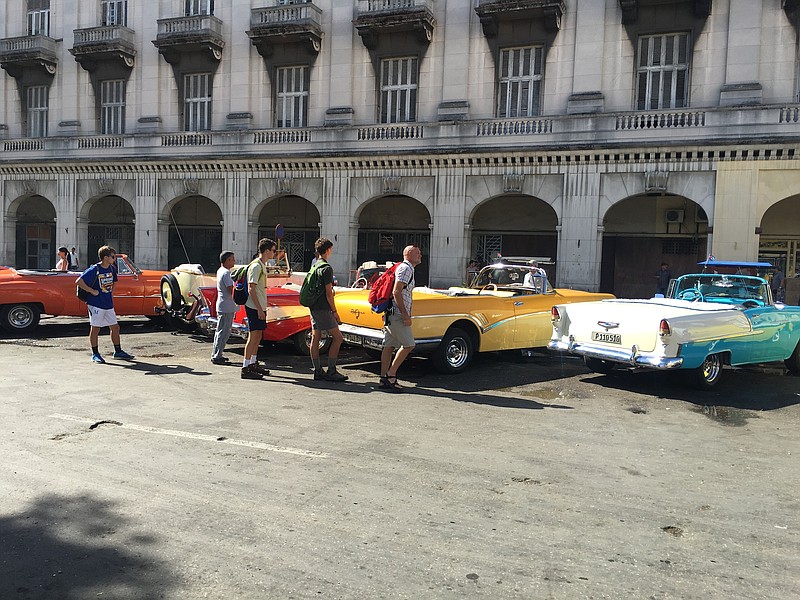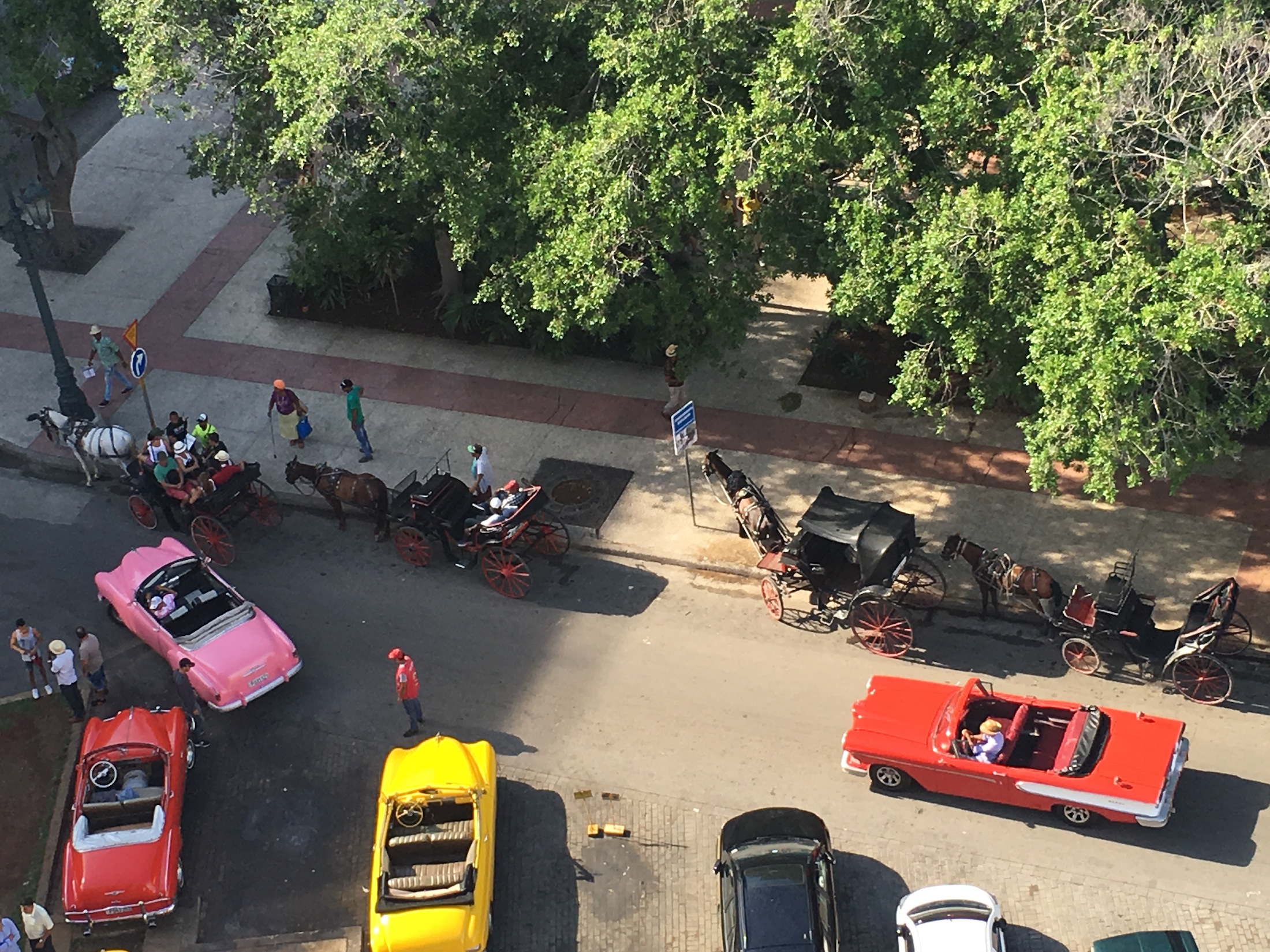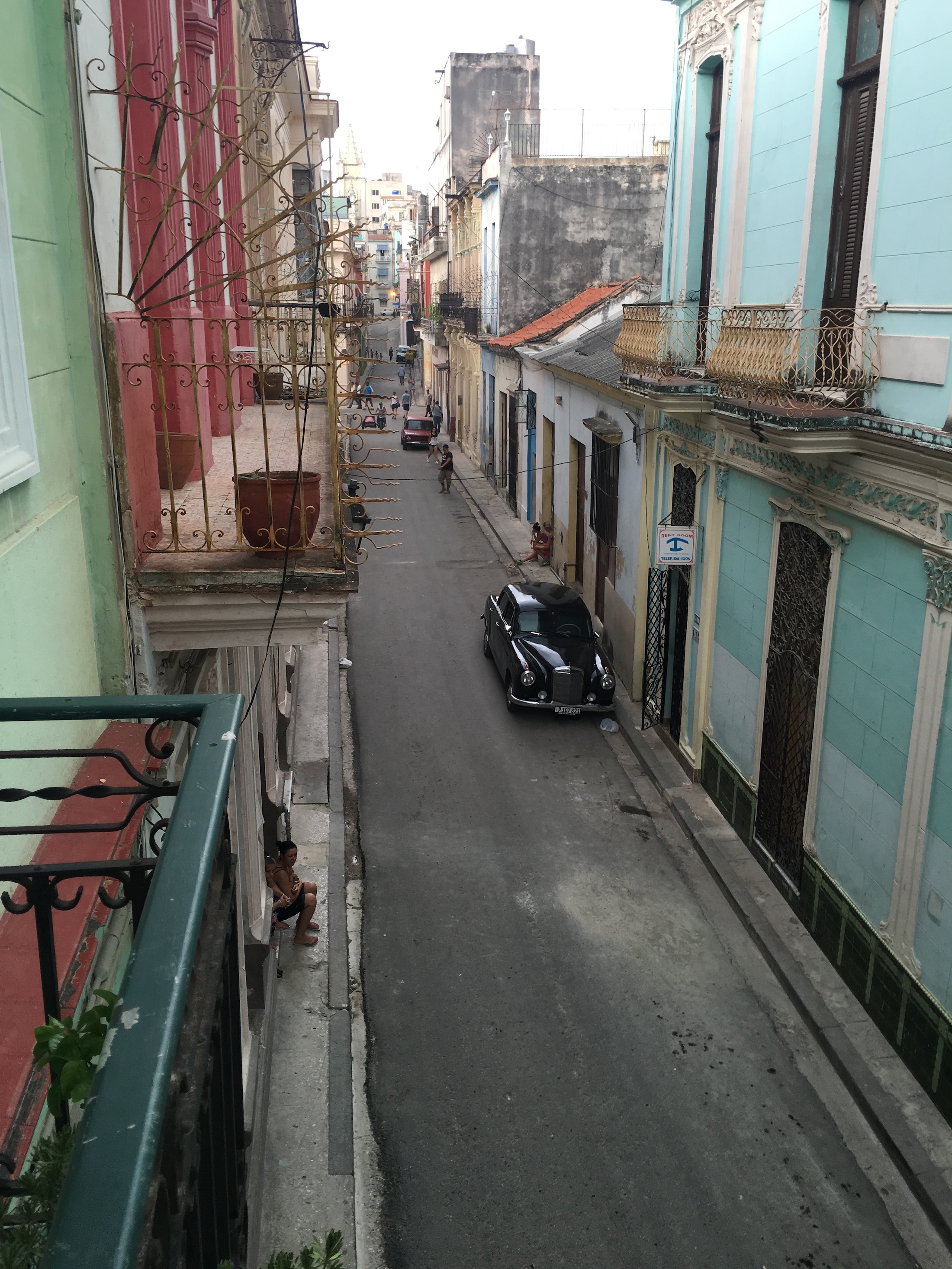 Bible study was held in "house churches," says McCallie chaplain Josh Deitrick. McCallie students shared their testimonies in these tarp-covered, backyard gatherings. Following the 1959 Revolution, Cubans were not allowed to build any new churches until two years ago when the government issued permits for the construction of a new Catholic church in Santiago de Cuba.
Bible study was held in "house churches," says McCallie chaplain Josh Deitrick. McCallie students shared their testimonies in these tarp-covered, backyard gatherings. Following the 1959 Revolution, Cubans were not allowed to build any new churches until two years ago when the government issued permits for the construction of a new Catholic church in Santiago de Cuba.King Jemison wanted to accomplish two things this summer: mission work and practicing his Spanish to improve his fluency. The rising senior at McCallie School did both during a week-long trip to Cuba with 11 other students.
McCallie counselor Will Honeycutt and McCallie chaplain Josh Deitrick coordinated the trip through Adventures in Missions, a Gainesville, Ga., company that specializes in short-term mission trips.
"We went with them because they have a focus on relationships rather than building projects, and that appealed to us," says Honeycutt.
Along with Jemison, other McCallie students on the trip were: David White, David Carroll, Parker Norton, Aaron Kopfinger, Michael Brown, James Leung, Myles Bagley, Liam Goldman, Josh Martin, Griffin Ball and John Knox.
About a month ago, the group flew to Miami, where they connected with a charter plane to Cuba. The first four days were spent with Eden Church in Cienfuegos, Cuba, where they led Bible study in their host's backyard in the evenings and sports camps for neighborhood kids in the day.
The remainder of the trip was spent touring Havana's museums, sightseeing and broadening their education about the Republic of Cuba. They also hiked into the jungle to see the waterfalls of El Nicho in the Sierra de Trinidad Mountains.
Until last year, Americans were a rare sight in Cuba. Following the Cuban Revolution in 1959 that turned the island communist, the U.S. Embargo that began in 1960 limited trade and tourism to the island. But in December 2014, the United States and Cuba restored diplomatic relations, allowing U.S. citizens to visit within the limitations of 12 categories that range from family visits and professional research/meetings to religious activities and activities of educational institutes.
The McCallie crew left America under the religious/educational categories but, once in Cuba, they were told to describe themselves as tourists. There is no national religion in Cuba, although 59 percent of the population would call themselves Catholic, according to Adventures in Missions website.
While it isn't illegal to be a Christian in Cuba, building physical churches, other than turning a home into a church, is against the law. Christians cannot meet with others to worship in public, nor can they share their faith openly in public. Only recently has Cuba allowed mission teams from the United States to enter, according to Adventures.
Honeycutt says the McCallie team brought sports equipment with them - footballs, soccer balls, baseballs and bats - along with Spanish-printed Bibles, all of which were left with the Cuban church when they departed. During the day, the guys walked the neighborhoods around Eden Church, inviting kids to sports camps. These new friends and their families were invited to informal church gatherings held under a tarp in the backyard of their host in the evenings, Honeycutt says.
Michael Brown, a May graduate of McCallie, says that as word got out about the sports camps, the students were invited by the Nationals baseball team from the district of Cienfuegos to play a game.
"We got smoked," laughs Brown. "They were phenomenal players. At the sports camps, we shared the gospel, let them know God loves them.
"In Cuba, they believe a lot of different things. A lot of the players believe in witchcraft and sorcery. Guys were telling me about players who'd pray to idols before a big game and ask them to bless their bats," Brown says.
"But there was also a guy on the baseball team who was a Christian and shared his testimony. It was neat to hear it. They listened to one of our guys give a testimony and we listened to one of theirs. It was a really special time."
Over the four evening gatherings, each of the McCallie students shared his Christian testimony with the group. While the majority of the students did not speak Spanish and relied on a translator, King Jemison surprised the Cubans.
"I spoke in Spanish and talked about the love of God and how it related to my life and to theirs," says the 17-year-old. "People in the church there were all strong believers, but when we did street evangelism, walking around and inviting people, there were some who said they didn't believe."
"The idea was we were there to meet our brothers and sisters and encourage them," says Honeycutt. "The testimonies were more teaching and opening up about own own lives to encourage people in the church."
For teens used to modern amenities, the week in Cuba was a culture shock. There was no fast-food franchise, no Wi-Fi, no cellphone service and American credit cards weren't accepted because of restrictions between the U.S. and Cuban governments.
"So you carry a lot of cash and convert that into the tourist peso, which is separate from the local peso," says Honeycutt. "But the people are friendly, loving, very welcoming. Our governments differ, but that doesn't keep people from enjoying each other."
The guys lodged in "casa particulars," the Cuban version of hostels, which are in homes.
"They do not have hot water in showers because it is so hot there and so many people work in the sun that they don't want a hot shower. But they have hot water in the sinks," says Brown.
"You couldn't drink the water, so we made frequent stops at gas stations to buy bottled water.We could put the bottled water in ice, but no ice in the water bottle," he jokes.
Jemison says rice and beans was standard fare at meals with "a lot of mango and the drink every day was mango juice."
But the biggest surprise, say the McCallie guys, was the number of vintage autos rolling through the streets of Cuba. Classic cars from the 1950s - Oldsmobiles, Chevrolets, Buicks that an American collector might spend thousands on - are Cubans' everyday rides.
Following the 1960 embargo, no foreign imports were allowed, says Brown, so families have maintained their cars for five decades, passing them from one generation to the next.
"They just basically take really good care of their cars and use what they can to keep them running. The engines are the same as the 1950s," says Deitrick.
Contact Susan Pierce at spierce@timesfreepress.com or 423-757-6284.


